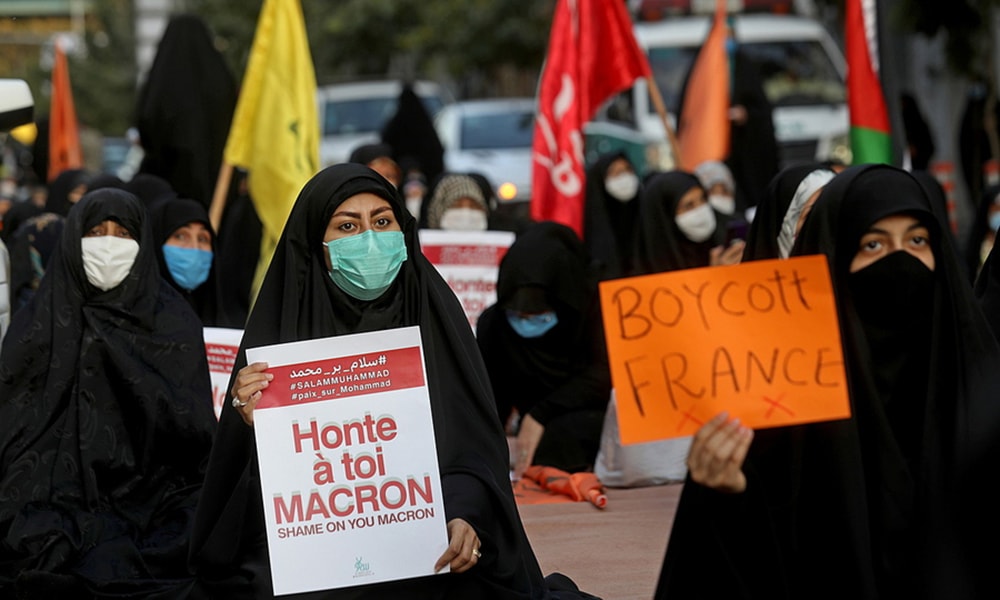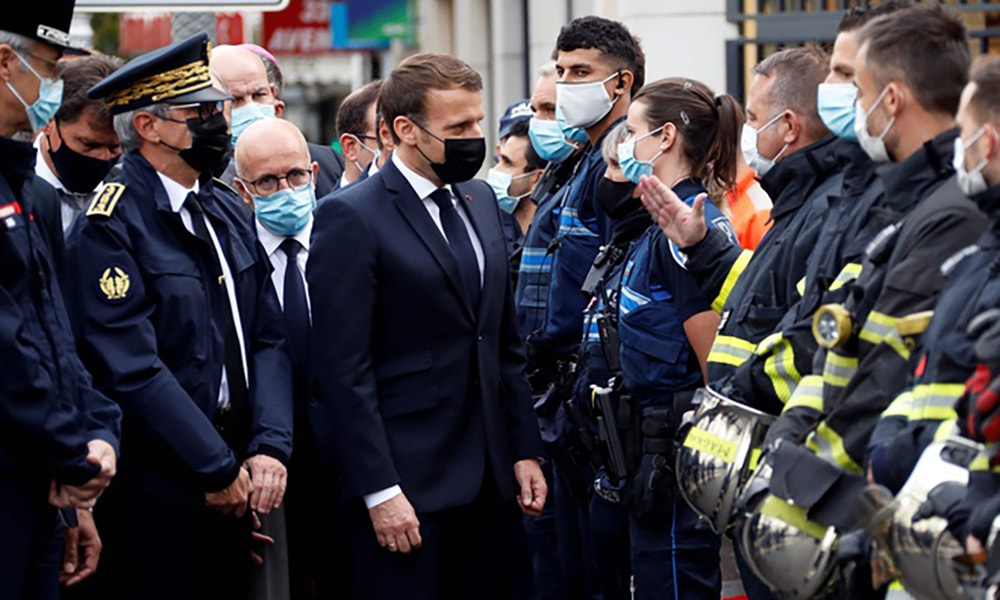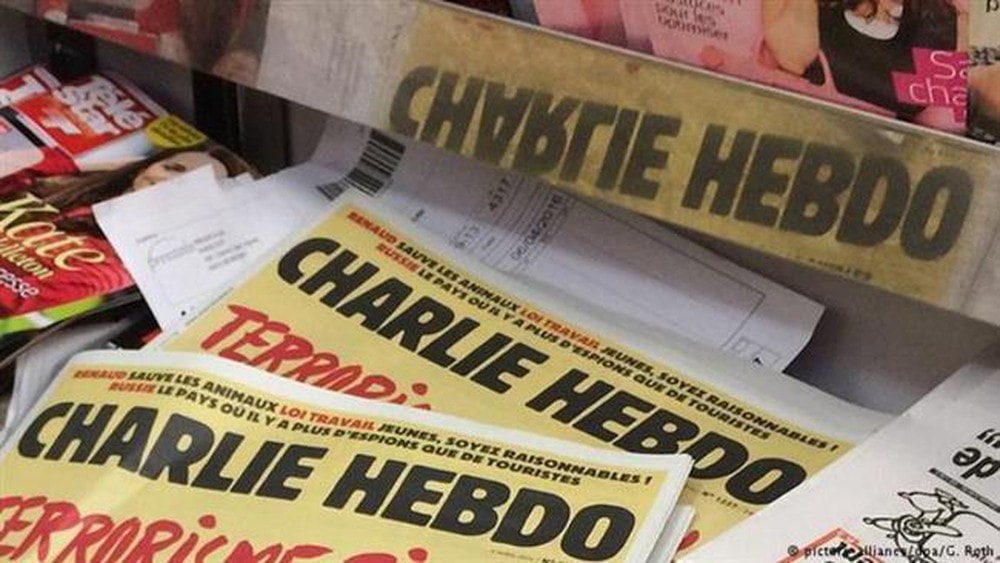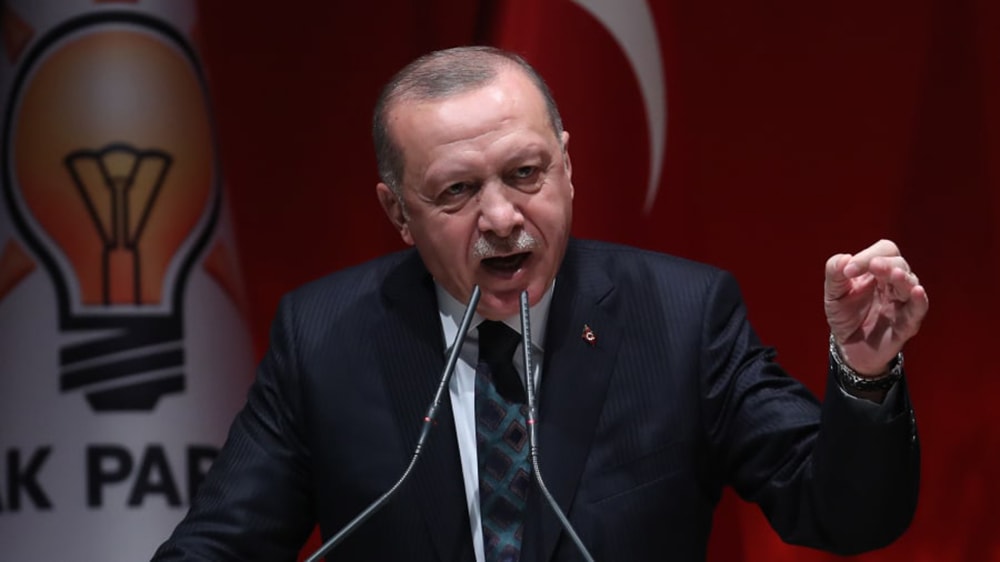The world last week: Increasing social tensions, deepening conflicts
(Baonghean.vn) - Hundreds of people from Arab countries gathered outside the French embassy in each country to protest President Macron because they believe that this leader has "anti-Islamic" views. Türkiye announced that it will take "legal and diplomatic action" against the French newspaper Charlie Hebdo, after the magazine published a cartoon of President Erdogan. These are international issues that have received public attention in the past week.
Tensions between France and Arab countries
Tensions between France and countries in the Arab world have been increasing in recent days and show no signs of abating. French PresidentEmmanuel Macronsparked anger by saying that Islam is a religion in crisis globally. In addition, insulting the Prophet Mohammed is completely taboo in Islam, but President Macron supported the publication of cartoons of the Prophet Mohammed, calling it an expression of freedom of expression. This sparked outrage from the Muslim community around the world.
 |
| Iranian protesters hold banners criticizing Macron and calling for a boycott of France outside the French embassy in Tehran on October 28. Photo: Reuters |
Mr Macron also commented after a French teacher, Samuel Paty, was beheaded for showing his studentscaricature of the Prophet Mohammedin a class on freedom of speech. He called the teacher a hero and pledged to fight “Islamic separatism”, which he said was threatening to engulf some Muslim communities in France.
The French leader's statements immediately faced fierce criticism from Arab countries. Iranian President Hassan Rouhani said in a televised speech on October 28 that "insulting the Prophet Mohammed is not an achievement. It is immoral and incites violence. The West should understand that insulting the Prophet is insulting all Muslims. Europe is indebted to the Prophet, because he is a teacher of humanity." A Saudi Arabian Foreign Ministry official said: "Freedom of expression and culture must be a beacon of respect, tolerance and peace, rejecting acts that cause hatred, violence and extremism."
Anti-French protests spread across many countries. Mostly Muslims took to the streets, chanting slogans such as “boycott French goods” and burning effigies of Macron, whom they described as “an enemy of Islam”. In Jordan and Iran, about 50 protesters gathered outside the French embassy. Referring to Paris’s stance, Dima Tahboub, a former member of the Jordanian parliament, said: “This is not freedom of speech, when someone’s religion is violated. This is a clear attack.”
 |
| French President Emmanuel Macron speaks to emergency workers at the scene of the attack on Notre Dame Cathedral in Nice on October 29. Photo: AFP |
On the French side, President Macron repeatedly declared that “France is under attack”. The latest knife attack occurred on October 29 at Notre Dame Cathedral in Nice. The suspect shouted “Allahu Akbar” as he beheaded a woman and killed two others. “Allahu Akbar” is an Arabic phrase meaning “God is great”.
France has raised the levelterrorist warningto “emergency” level – the highest in the country’s three-tier system. Mosques in Paris were closed, and areas around the Arc de Triomphe and Eiffel Tower were briefly sealed off as a security measure.
Deepening the Türkiye-France conflict
The cartoon was described as “disgusting” by Turkish President Tayyip Erdogan. And Ankara’s announcement that prosecutors had opened a formal investigation into the French publication Charlie Hebdo has exacerbated already rising tensions between the two countries. While France is seekingsanctionsof the European Union towards Türkiye.
President Erdogan has suggested that President Macron needs a “mental examination” over his treatment of Muslims, and accused Western countries of mocking Islam and trying to “restart the crusades”.
 |
| The famous French satirical magazine Charlie Hebdo has exacerbated the already growing tensions between Turkey and France. |
The move comes after French satirical magazine Charlie Hebdo published a front-page cartoon of Mr Erdogan wearing a T-shirt and shorts, drinking a can of beer and lifting the skirt of a woman wearing a headscarf. “Oh, the prophet!” the cartoon character says, while the headline reads “Erdogan: whisper, he is very funny”.
“I think it is wrong to see these immoral publications... who insult our beloved Prophet. I believe that the enemies of Turkey and Islam will drown in the swamp of hatred. It is a sign that Europe has returned to the dark ages,” President Erdogan told lawmakers.
Turkish President Tayyip Erdogan also called on people to stop buying French goods and accused Paris of pursuing an anti-Islamic agenda. The country's Minister of Industry and Technology even called on businesses to implement a boycott, demonstrating a firm stance. Turkey's four political parties also showed "rare" unity, issuing a joint statement saying Mr. Macron was reckless in promoting freedom of speech and that his stance could cause serious conflict.
The French cartoon of the Turkish leader also sparked outrage among Ankara’s leadership. The president’s communications director described the cartoon as “a product of a xenophobic, Islamophobic and intolerant cultural environment that the French leadership seems to want for their country.” A presidential spokesman said: “We strongly condemn the publication of our president, which disrespects faith, sanctity and values. The purpose of the publication is to sow hatred. Turning freedom of expression into hostility towards religion and belief can only be the product of a sick mentality.”
 |
| Turkish President Tayyip Erdogan called on people to boycott French goods. Photo: AFP |
Türkiye has vowed to take “legal, diplomatic” action in response to the cartoons. And according to the Ankara Chief Prosecutor’s Office, insulting a head of state is a crime in Türkiye, punishable by up to four years in prison.
Turkish Vice President Fuat Oktay called Charlie Hebdo “a rag that cannot be washed out”, condemned the immoral publication, and called on “the international community with morality and conscience to speak out against this disgrace”.
In recent times, Türkiye and Franceconstantly confront each otherin a number of conflicts and tensions, including the civil war in Libya, resource disputes in the Eastern Mediterranean. Or most recently, France has condemned Türkiye’s military actions in Syria and its involvement in the fierce fighting over Nagorno-Karabakh. The growing international hostility and tensions have added to already heightened investor concerns amid a collapsing economy and a plummeting national currency. The Turkish lira has hit a record low of 8.2 lira against the dollar.

